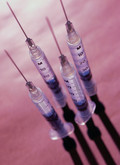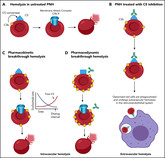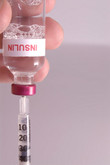Biosimilars
Spanish Psoriasis Group update biosimilar position statement
The use of biosimilar drugs in the treatment of moderate to severe psoriasis has changed the current therapeutic approach. Evidence from clinical trials and real-world experiences has led to an update in the positioning of the Spanish Psoriasis Group (GPS) [1].
US and EC approvals for Hyrimoz, US approval for Udenyca autoinjector
In March 2023, the US Food and Drug Administration (FDA) approved Sandoz’s Hyrimoz biosimilar, a citrate-free high-concentration formulation (HCF) of adalimumab, as well as Coherus Biosciences’ (Coherus) innovative single-dose, prefilled autoinjector presentation of Udenyca (pegfilgrastim-cbqv).
Bio-USER survey highlights the perception of retina specialists about biosimilars
The International Biosimilar Retina Study Group (Inter-BIOS Study Group) has recently published the results of the largest survey of biosimilar awareness amongst retina specialists practicing in the US and Europe [1]. The Survey was targeted at 200 retina specialists (100 from the US and 100 from Europe) and 112 retina specialists (55 from the US and 57 from Europe) responded. These results were presented at the 22nd Euretina Congress held in Hamburg, Germany [2], and also at the American Academy of Ophthalmology 2022 Annual Meeting held in Chicago, USA [3]. Following were the major findings of this survey:
First African developed biosimilar adalimumab starts phase I trial in Germany
A phase I clinical trial of Minapharm Pharmaceuticals’ first African developed adalimumab biosimilar, Adessia, was initiated on 24 February 2023 in Germany with results to be expected at the end of 2023.
Biosimilar launches in Canada and US: Byooviz and Stimufend
In Canada, Biogen announced that their Byooviz (ranibizumab) injection, a biosimilar of Lucentis, is available as of March 2023. In the preceding month, Fresenius Kabi launched Stimufend (pegfilgrastim-fpgk), a biosimilar of Amgen’s Neulasta, in the US.
Challenges for Spanish generics and biosimilars industry: sustainable profitability
Spain's generics and biosimilars industry is calling for their profitability to be guaranteed after authorities lowered the reference prices of over 1,000 drugs.
Low biosimilar uptake in regions of low social and political trust
The adoption of biosimilars is lower in regions experiencing low social and governmental trust, finds a recent study that focused on uptake in provinces of Italy and Germany [1].
EMA recommends approval of eculizumab biosimilar Bekemv
The European Medicines Agency’s (EMA) Committee for Medicinal Products for Human Use (CHMP) announced on 24 February 2023 that it had recommended granting of marketing authorization for the eculizumab biosimilar Bekemv.
Lilly, Novo Nordisk and Sanofi slash prices of insulin in the US
In March 2023, major insulin manufacturers Eli Lilly (Lilly), Novo Nordisk and Sanofi announced price reductions of 70%, 75% and 78% respectively, for their most commonly prescribed insulins in the US, starting from first quarter of 2023 for Lilly and from 1 January 2024 for Novo Nordisk and Sanofi. The three companies control over 90% of the global insulin market.
American College of Rheumatology position statement on biosimilars updated
In late 2022, the American College of Rheumatology (ACR) issued a position statement on biosimilars [1] in which they emphasized their strong belief that safe and effective treatments should be available to patients at the lowest possible cost. This is an update of previous position statements [2].













